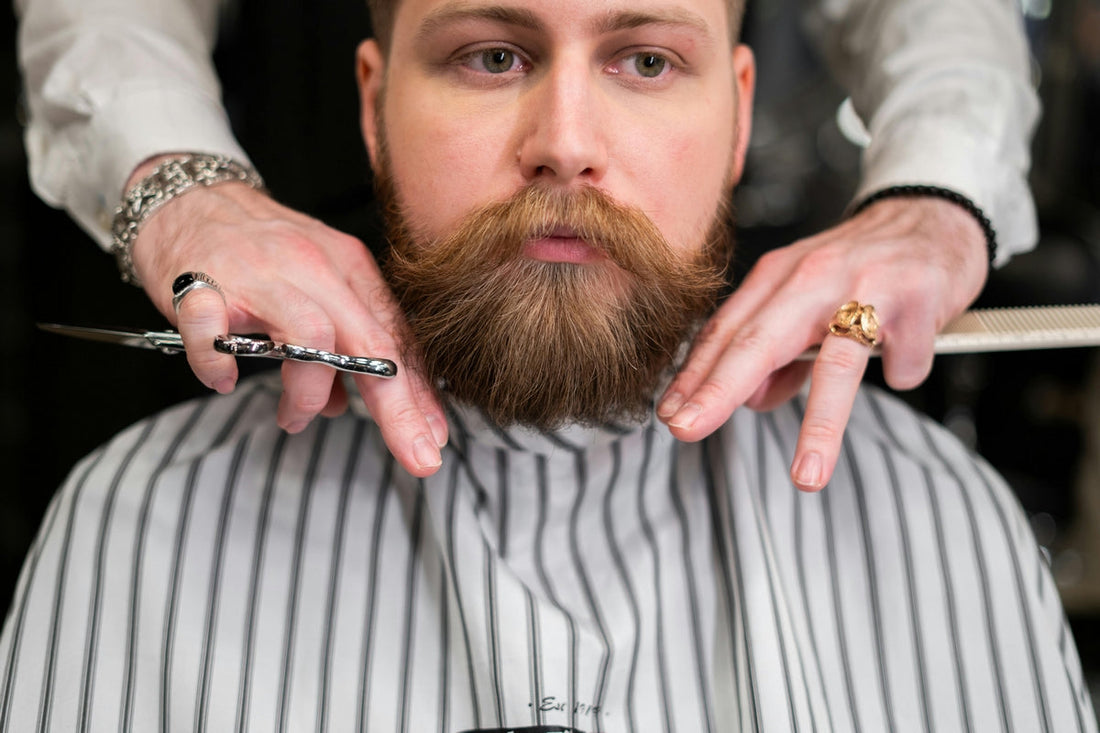
Biotin for Men – Does It Really Support Beard Growth and Skin Health?
Share
If you're dreaming of a thick beard and healthy facial skin, you've probably come across information about biotin as a miracle supplement. But does biotin and beard growth really translate into better facial hair and healthy skin in men?
Biotin and Beard Growth – What Do Studies Say?
Although biotin is heavily marketed in the supplement industry as a beard growth booster, scientific research on this topic is still limited. Most evidence is indirect and based on biotin’s role in keratin metabolism – a protein that is a primary component of hair.
Several studies suggest that biotin deficiency may lead to weakened hair structure, brittleness, and slower growth. Importantly, this applies not only to scalp hair but also to facial hair. In practice, this means that if a man’s body already has sufficient levels of biotin, supplementation is unlikely to increase beard growth rate.
On the other hand, men with even a mild deficiency in this vitamin may notice a significant improvement in beard quality within just a few weeks of supplementation. Some report increased beard density and better texture – the hair becomes stronger, less brittle, and more flexible.
It’s also worth noting that beard growth is genetically determined. Even the best supplement won’t drastically change growth rate or thickness if your genes dictate sparse facial hair. Nevertheless, biotin can effectively support your natural growth potential, especially if hair health is poor.
The Effects of Biotin on Facial Skin Health
When it comes to facial skin health, the scientific evidence is more consistent. Biotin supports skin function by participating in skin cell regeneration and reducing excessive flaking. For men dealing with dry, flaky, or irritated skin, biotin supplementation may provide visible benefits.
Dermatological studies show that biotin helps maintain the skin’s lipid barrier, which is essential for proper hydration and protection against external factors such as wind, cold, or UV radiation.
Additionally, biotin may help reduce inflammation, which is particularly important for men struggling with acne or eczema. While supplementation is not a substitute for dermatological treatment, it can be a valuable part of skin therapy.
Biotin supplementation for men – is it necessary?
Not every man needs to take biotin supplements. If you don’t experience any skin or beard issues and your diet is varied, supplementation may not be necessary. However, it can be helpful in situations such as:
- chronic stress,
- a demanding lifestyle,
- biotin-poor diets (e.g. a vegan diet without appropriate supplementation),
- post-illness recovery or long-term infections that may have weakened the body.
Athletes and physically active men may also benefit from biotin, as their bodies require more micronutrients and vitamins.
How to Take Biotin for Optimal Results
If you decide to take biotin, the recommended daily dose for improving beard and skin quality in men is usually between 2500 µg and 10000 µg (2.5 – 10 mg). Consistency is key – supplementation should continue for at least three months before evaluating its effectiveness.
Keep in mind that biotin alone isn’t everything – proper skin and beard care is just as important:
- regular face cleansing,
- use of beard oils,
- proper skin hydration,
- avoiding harsh alcohol-based cosmetics.
Also, ensure your diet includes nutrients that work synergistically with biotin, such as zinc, vitamin E, and omega-3 fatty acids.
Possible Side Effects of Biotin Supplementation
Biotin is generally a safe supplement, but moderation is important. High doses (above 10,000 µg per day) may cause digestive issues or interfere with lab test results, such as thyroid hormone levels or troponin (important in heart diagnostics).
If you're taking any regular medication, consult a doctor before starting biotin to avoid potential interactions.
Always observe your body’s response during supplementation. If you notice any worrying symptoms, stop taking the supplement and seek medical advice.
Conclusion – Is Biotin Right for You?
Biotin can support beard growth and improve skin health, especially for men who have a deficiency in this vitamin or follow a biotin-poor diet. If you experience skin problems or have patchy, weak beard growth – biotin might be worth trying.
However, for men with a well-balanced diet and no visible skin or beard concerns, the effects of biotin supplementation may be mild or even unnoticeable. In such cases, focus on a healthy lifestyle and proper grooming routines.
